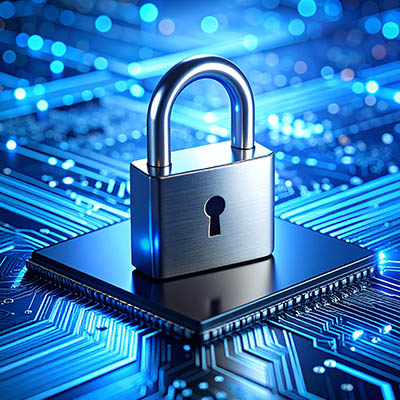Master Your Passwords: A Guide to Digital Security

Think about all the online accounts you have, from social media to banking to email. With so many accounts, it’s crucial to make sure they’re secure. Creating a strong, unique password is one of the best and easiest ways to protect yourself from hackers. Here’s how you can create passwords that are hard to crack and keep your digital life safe.
Create Long, Complex Passwords
A strong password should be both long and complex. The goal is to create a random string of characters that is nearly impossible for a hacker to guess or for a program to crack. Aim for a password that is at least 12-to-16 characters long and includes a mix of:
- Uppercase and lowercase letters (A, b, C, d)
- Numbers (4, 7, 9)
- Special symbols (!, @, #, $)
A common password like DontRuinYourRep123 is a bad choice because it’s short, uses a common word, and has a predictable pattern. A much stronger option would be something like d0nTRu13ny0UrR3p1@3. It’s longer, has a variety of character types, and isn’t something easily associated with you.
Avoid Common Words and Personal Information
Hackers often start by trying the most common passwords, like password or 123456. They also try easily available personal details. Avoid using any of the following in your passwords:
- Your name, initials, or birthday
- Names of family members, pets, or sports teams
- Common phrases or dictionary words
Instead, try creating a passphrase—a sentence or series of words that only you would know. For example, instead of using footballfan, you could use 5FieldG0albeat2T0uchd0wn$. This is much more secure because it’s unique, memorable, and difficult for others to guess.
Use a Unique Password for Every Account
Reusing the same password for multiple accounts is one of the biggest security risks. If a hacker gains access to one account, they can try that same password on all your other accounts, potentially locking you out of everything.
To stay safe, use a unique password for every account. If you’re worried about remembering them all, consider using a password manager. These apps securely store and organize all your passwords for you, so you only have to remember one master password to access them all. This makes it simple to keep track of unique, complex passwords without having to write them down or memorize each one individually.
Extra Tips for Password Safety
Enable two-factor authentication (2FA) whenever possible. This adds an extra layer of security by requiring a second step to log in, like a code sent to your phone.
Update your passwords regularly, especially if you think an account might have been compromised. You should never share your passwords with anyone. Keeping your passwords private is the safest way to protect your accounts.
By creating strong, unique passwords, you are installing a high-security lock to protect your most valuable information. For more great tips and tricks, visit our blog.

